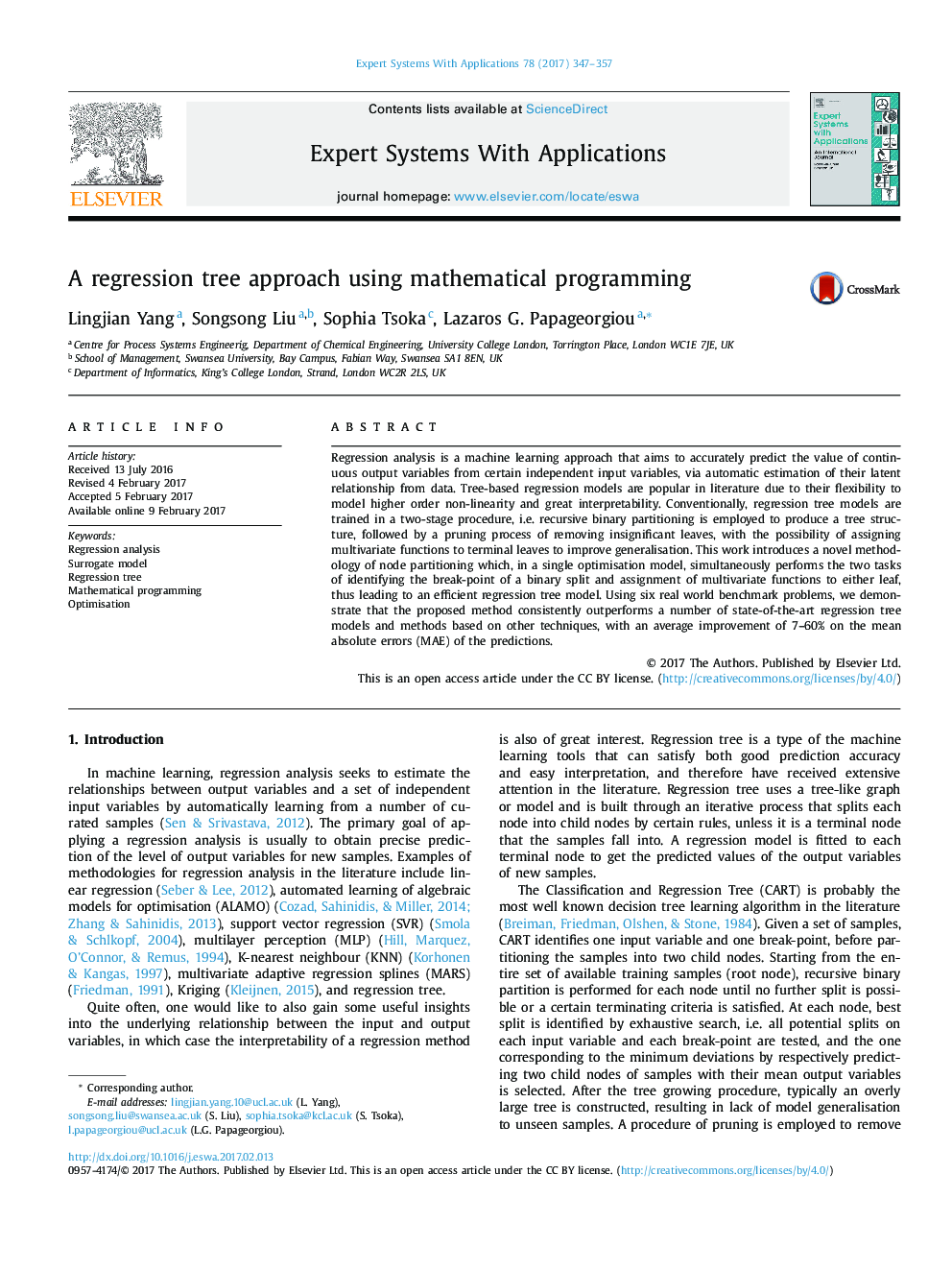| Article ID | Journal | Published Year | Pages | File Type |
|---|---|---|---|---|
| 4943600 | Expert Systems with Applications | 2017 | 11 Pages |
â¢This work proposes a novel tree model for multivariate regression analysis.â¢Both node splitting and regression coefficients are optimised in this model.â¢The proposed method achieves improved prediction accuracy than literature methods.â¢The resultant trees are at least as simple as the ones from previous methods.
Regression analysis is a machine learning approach that aims to accurately predict the value of continuous output variables from certain independent input variables, via automatic estimation of their latent relationship from data. Tree-based regression models are popular in literature due to their flexibility to model higher order non-linearity and great interpretability. Conventionally, regression tree models are trained in a two-stage procedure, i.e. recursive binary partitioning is employed to produce a tree structure, followed by a pruning process of removing insignificant leaves, with the possibility of assigning multivariate functions to terminal leaves to improve generalisation. This work introduces a novel methodology of node partitioning which, in a single optimisation model, simultaneously performs the two tasks of identifying the break-point of a binary split and assignment of multivariate functions to either leaf, thus leading to an efficient regression tree model. Using six real world benchmark problems, we demonstrate that the proposed method consistently outperforms a number of state-of-the-art regression tree models and methods based on other techniques, with an average improvement of 7-60% on the mean absolute errors (MAE) of the predictions.
